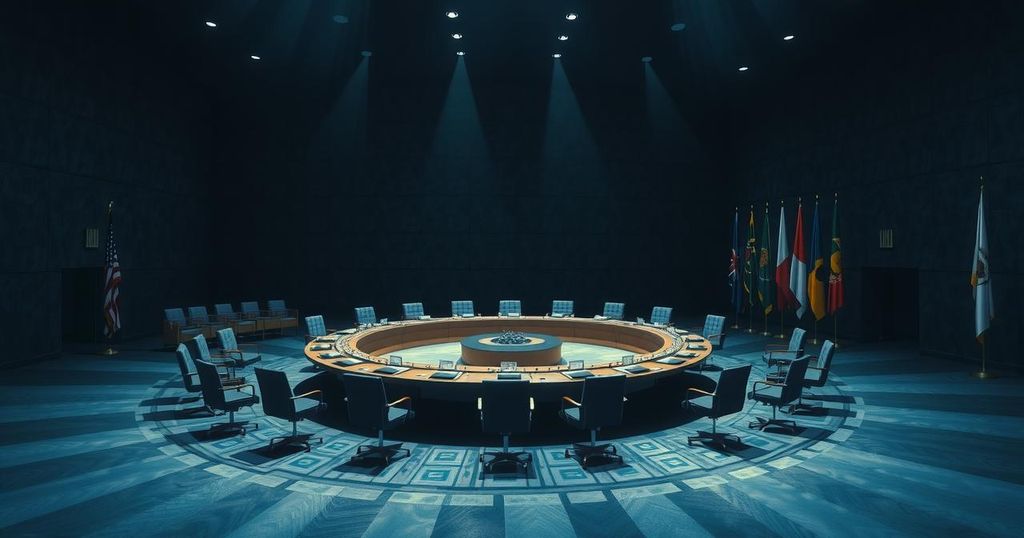Russia has criticized Syria’s new leadership in a recent UN briefing, raising concerns over jihadist activities and sectarian violence reminiscent of the Rwandan genocide. Amidst calls for unity, Russia aims to balance its military interests with strategic influence while cautioning against the potential for exacerbated sectarian conflict. The situation underscores the need for an inclusive political transition in Syria.
Recent reports indicate that during a closed United Nations briefing, Russia expressed strong criticism of Syria’s new leadership, emphasizing concerns about the rise of jihadist elements. This criticism comes in light of recent sectarian violence, which involved widespread killings of the Alawite minority, prompting comparisons to the Rwandan genocide by Russian envoy Vassily Nebenzia. The Kremlin continues to seek to retain military bases in Syria amid these tensions.
The violence in question was ignited by an attack on March 6 against newly appointed government security forces, attributed to factions loyal to ousted leader Bashar al-Assad. Following the attack, various groups have been implicated in retaliatory killings against Alawites across multiple provinces. Despite its previous support for Assad, Russia has publicly urged for a unified Syria while privately voicing more severe concerns during the Security Council session.
Nebenzia’s remarks included a comparison of the ongoing Syrian violence to the historical events in Rwanda, where systematic massacres occurred. When questioned about the rationale for the harsher private critique, experts noted that Russia is attempting to restore its influence in the region without alienating the current Syrian administration. Russia’s strategy involves maintaining a balance between criticizing the new government and preserving connections crucial for their political ambitions.
Warnings were issued regarding the dissolution of Syria’s army and cuts to the public workforce, with Nebenzia predicting a potential repeat of the chaotic sectarian violence experienced in post-Saddam Iraq. Critics have noted the new Islamist government’s approach appears to marginalize Alawites and fail to establish a truly inclusive national dialogue. In a recent interview, interim President Ahmed al-Sharaa stressed the necessity of inclusivity and maintaining ties with Russia.
During the briefing, differentiation was made regarding the new regime’s policies, which were characterized as creating a corrupt foundation for governance. Russia’s concerns also included the presence of foreign fighters in Syria and their adverse impact on stability. The Security Council, comprising fifteen members, is currently working towards a consensus statement condemning the escalating violence and urging protection for all Syrian citizens, regardless of their ethnic or religious backgrounds.
In conclusion, Russia’s recent closed-door criticisms of Syria’s new government underline significant concerns regarding sectarian violence and the rise of jihadist forces. The Kremlin aims to navigate complex dynamics while retaining its strategic military interests in Syria. There is a clear need for the international community to encourage an inclusive political transition to mitigate further violence and uphold the rights of all ethnic and religious groups in Syria.
Original Source: www.usnews.com






